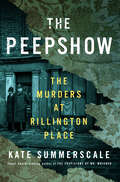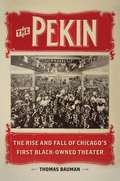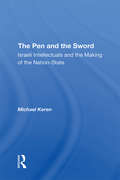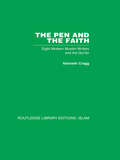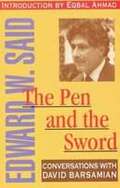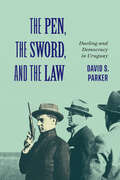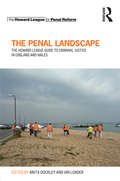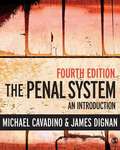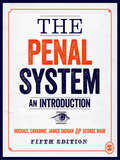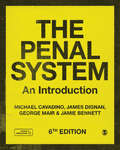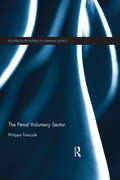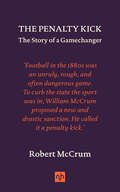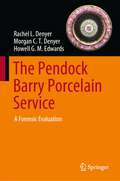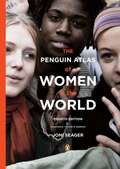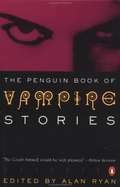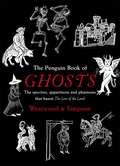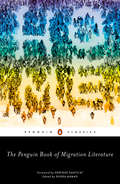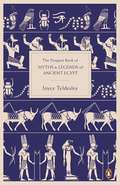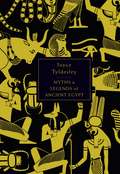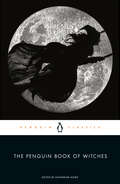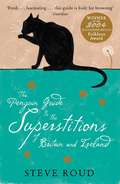- Table View
- List View
The Peepshow: The Murders at Rillington Place
by Kate Summerscale*Named a Best Book of 2024 by FT * Nominated for the Women's prize for nonfiction*From the Edgar Award–winning author of The Haunting of Alma Fielding, the tale of two journalists competing to solve the notorious Christie murders in postwar LondonIn March 1953, London police discovered the bodies of three young women hidden in a wall at 10 Rillington Place, a dingy rowhouse in Notting Hill. On searching the building, they found another body beneath the floorboards, then an array of human bones in the garden. They launched a nationwide manhunt for the tenant of the ground-floor apartment, a softly spoken former policeman named Reg Christie. But they had already investigated a double murder at 10 Rillington Place three years before, and the killer was hanged. Did they get the wrong man?The story was an instant sensation. The star reporter Harry Procter chased after the scoop on Christie. The eminent crime writer Fryn Tennyson Jesse begged her editor to let her cover the case. To Harry and Fryn, Christie seemed a new kind of murderer: he was vacant, impersonal, a creature of a brutish postwar world. Christie liked to watch women, they discovered, and he liked to kill them. They realized that he might also have engineered a terrible miscarriage of justice.In this riveting true story, Kate Summerscale mines the archives to uncover the lives of Christie&’s victims, the tabloid frenzy that their deaths inspired, and the truth about what happened inside the house. What she finds sheds fascinating light on the origins of our fixation with true crime—and suggests a new solution to one of the most notorious cases of the century.
The Pekin: The Rise and Fall of Chicago's First Black-Owned Theater
by Thomas BaumanIn 1904, political operator and gambling boss Robert T. Motts opened the Pekin Theater in Chicago. Dubbed the "Temple of Music," the Pekin became one of the country's most prestigious African American cultural institutions, renowned for its all-black stock company and school for actors, an orchestra able to play ragtime and opera with equal brilliance, and a repertoire of original musical comedies. A missing chapter in African American theatrical history, Bauman's saga presents how Motts used his entrepreneurial acumen to create a successful black-owned enterprise. Concentrating on institutional history, Bauman explores the Pekin's philosophy of hiring only African American staff, its embrace of multi-racial upper class audiences, and its ready assumption of roles as diverse as community center, social club, and fundraising instrument. The Pekin's prestige and profitability faltered after Motts' death in 1911 as his heirs lacked his savvy, and African American elites turned away from pure entertainment in favor of spiritual uplift. But, as Bauman shows, the theater had already opened the door to a new dynamic of both intra- and inter-racial theater-going and showed the ways a success, like the Pekin, had a positive economic and social impact on the surrounding community.
The Pelvic Floor Bible: Everything You Need to Know to Prevent and Cure Problems at Every Stage in Your Life
by Jane SimpsonHave you ever laughed so much you wet yourself - just a little bit? Or found yourself crossing your legs on the doorstep frantically searching for your keys? Do you get up at night to go to the toilet more than once?An estimated 200 million people around the world suffer from some form of urinary incontinence. It's an embarrassing problem that affects women disproportionately as a result of pregnancy and childbirth. In The Pelvic Floor Bible, Jane Simpson argues that it's time for us all to feel the squeeze and celebrate the wonder of our pelvic floor muscles. She shows you how to incorporate pelvic floor exercises as part of your daily routine in order to prevent issues in later life and cure existing problems now. Learn how to treat common problems such as stress incontinence, overactive bladder and prolapse, get back into shape post-pregnancy and enjoy a healthy sex life at every stage of your life. Incontinence is both preventable and curable through pelvic floor exercises and rehabilitation but too many people assume nothing can be done, follow incorrect advice or are ashamed to seek help. We need to end the taboo now.
The Pembrokeshire Murders: NOW A MAJOR TV DRAMA
by Jonathan Hill Steve WilkinsThe dramatic, compelling bestselling account of how a serial killer was finally unmasked after evading justice for more than twenty yearsNow a major TV series starring Luke Evans1980s. In the beautiful, unspoiled landscape of Pembrokeshire, a serial killer is at large: two double murders; an assault; the rape and assault of two teenagers - all potentially the work of one man.This is the fascinating true story of a brutal murderer and the detectives who worked the cold case for six years in order to bring him to justice. Combining cutting edge forensic techniques with old fashioned detective work, a team of detectives worked to build a case against their prime suspect. But it was a race against time: would he strike again?No one could predict that the killer's appearance on a gameshow would provide bizarre but crucial evidence.The operation is now recognised as one of the greatest cold case reviews ever undertaken in the UK.The killer is now serving a "life means life" sentence.Perfect for fans of The Serpent
The Pen And The Sword: Israeli Intellectuals And The Making Of The Nation-state
by Michael KerenThis book details on the important segment of Jewish society, focusing on the role of intellectuals in the formation and growth of the state of Israel. It examines the relationship between Israeli intellectuals and their state as a case study.
The Pen and the Faith: Eight Modern Muslim Writers and the Qur'an
by Kenneth CraggWhat is happening in Islam is of concern to more than Muslims. The Qur’an is the prime possession of Muslims: how then, are they reading and understanding their sacred Book today? This volume, originally published in 1985, examines eight writers from India, Egypt, Iran and Senegal. Their way with the Qur’an indicates how some in Islam respond to the pressures in life and thought, associated in the West with thinkers such as Kierkegaard, Marx, Camus, Kafka, Jung, Fanon and De Chardin.
The Pen and the Sword: Conversations with David Barsamian
by Edward W. SaidEdward W. Said, raised in Jerusalem, is interviewed here on a range of subjects: from V.S. Naipaul's and Joseph Conrad's depictions of colonialism and empire in their novels; to the links between the Palestinian and South African struggles.
The Pen, the Sword, and the Law: Dueling and Democracy in Uruguay (McGill-Queen's Iberian and Latin American Cultures Series)
by David S. ParkerThe duel, and the codes of honour that governed duelling, functioned for decades in many European and Latin American countries as a shadow legal system, regulating in practice what legislators felt free to say and what journalists felt free to write. Yet the duel was also an act of potentially deadly violence and a challenge to the authority of statutory law.When duelling became widespread in early twentieth-century Uruguay, legislators facing this dilemma chose the unique and radical path of legalization. The Pen, the Sword, and the Law explores how the only country in the world to decriminalize duelling managed the tension between these informal but widely accepted “gentlemanly laws” and its own criminal code. The duel, which remained legal until 1992, was meant to ensure civility in politics and decorum in the press, but it often failed to achieve either. Drawing on rich and detailed newspaper reports of duels and challenges, parliamentary debates, legal records, private papers, and interviews, David Parker examines the role of pistols and sabres in shaping the everyday workings of a raucous public sphere. Demonstrating that the duel was no simple throwback to archaic conceptions of masculine honour and chivalry, The Pen, the Sword, and the Law illustrates how duelling went hand in hand with democracy and freedom of the press in one of South America’s most progressive nations.
The Penal Landscape: The Howard League Guide to Criminal Justice in England and Wales
by Ian Loader Anita DockleyThe Howard League for Penal Reform is committed to developing an effective penal system which ensures there are fewer victims of crime, has a diminished role for prison and creates a safer community for all. In this collection of ten papers, the charity has brought together some of the most prominent academic experts in the field to map out what is happening in a specific area of criminal justice policy, ranging from prison privatisation to policing and the role of community sentences. The Howard League guide has two main aims: first it seeks to paint a picture of the current state of the penal system, using its structures, processes and the specific groups affected by the system as the lens for analysis. However, each author also seeks to identify the challenges and gaps in understanding that should be considered to predicate a move towards a reduced role for the penal system, and prison in particular, while maintaining public confidence and safer communities. In doing so, we hope to inspire researchers and students alike to develop new research proposals that challenge the status quo and seek to create the Howard League’s vision for the criminal justice system with less crime, safer communities, fewer people in prison.
The Penal System
by Michael Cavadino James Dignan'. . the most authoritative and sophisticated textbook on the penal system of England and Wales. It is essential reading for anyone who wishes to understand the causes, character and consequences of the current penal 'crisis'. David Downes, Mannheim Centre of Criminology, London School of Economics. 'What do you look for in a good textbook ? You would expect it to be as up-to-date as possible. To be presented in a clear and accessible style. To cover the issues comprehensively. The Penal System delivers in all of these ways. Mick Cavadino and Jim Dignan write with passion and authority, which makes for an immensely readable book. If there is such a thing as an ideal textbook, then this is it. ' George Mair, Professor in Criminal Justice, Liverpool John Moores University. '…remains the most comprehensive, up-to-date, and readable text on the subject. ' Yvonne Jewkes, Reader in Criminology, The Open University 'The perfect mix of the theoretical and the practical, Cavadino and Dignan's updated book is the smartest, cutting-edge textbook available on the crucial subject of penology. ' Shadd Maruna, Queen's University Belfast '…. . the book remains an essential resource for students in criminology and criminal justice. The authors are hugely effective in delivering a comprehensive guide to criminal justice issues in the 21st century. Students will also find the self-study guide to electronic sources immensely helpful. ' Loraine Gelsthorpe, University of Cambridge. The revised and updated edition of this bestselling textbook is the most integrated and authoritative overview of the penal system available. The Penal System provides a complete introduction to all aspects of punishment within the wider context of the criminal justice system. It covers all the key theories and topics that a student of criminology or criminal justice needs to know about in their course. The new edition features: " Coverage of the deepening penal crisis " New material on restorative justice " Discussion of recent theoretical developments " An overview of changes in the prison and probation services (NOMS) " Critical analysis of recent developments in criminal justice policy " A glossary of key terms and abbreviations " An extended self-study guide to internet resources " A companion website to keep students and teachers up-to-date with relevant legislation. www. sagepub. co. uk/thepenalsystem Building on the strengths of the third edition, The Penal System remains the most comprehensive analysis of theory, research and policy in the area. Praise for previous editions: "There are few 'must buy' books for students of criminology and criminal justice, but since its first edition in 1992 The Penal System: An Introduction has been one of them. For accuracy and scope, as well as its remarkable combination of scholarly rigour and readability, the book has no equal, and it has only got better through successive editions. " David Smith, Professor of Criminology, Lancaster University. "For more than ten years Cavadino and Dignan have provided by far the best policy relevant and theoretically informed account of the British penal system. This new edition has only the high standards of its predecessors to beat. Cavadino and Dignan may not have managed to change the penal system for the better with their book, but no one has delivered a more accessible or intelligent account of why it is so hard to reform. " Mike Nellis, Professor of Criminal and Community Justice, University of Strathclyde
The Penal System: An Introduction
by George Mair James Dignan Mick CavadinoNow in its fifth edition, The Penal System: An Introduction remains the most complete, accessible and authoritative resource for your studies in Criminal Justice and Criminology. Fully revised and updated to account for recent changes in the Criminal Justice System, the new edition includes: - Expanded material on restorative justice - An expanded section on gender and the Criminal Justice System - Greater coverage of comparative issues, focussing especially on Scotland - An annually updated companion website, keeping you up-to-date with relevant legislation and crucial developments - An accessible writing style balanced against a critical and scholarly approach - A glossary of key terms that you'll encounter throughout your studies - Continued critical coverage of the deepening penal crisis, including sections on the managerial crisis and the crisis of accountability The Penal System consolidates and builds on the successful formula of the fourth edition, bringing the text in line with the key issues facing the Criminal Justice System today. It will prove essential reading across all undergraduate levels for modules on Criminal Justice and Prisons/Punishment.
The Penal System: An Introduction
by George Mair James Dignan Mick Cavadino Jamie BennettNow in its Sixth Edition, this remains the most comprehensive and authoritative book on the penal system, providing students with an incisive, critical account of the punitive, managerial and humanitarian approaches to criminal justice. Fully updated to cover the most recent changes in the Criminal Justice System, the new edition: Outlines contemporary policy debates on sentencing, staffing, youth custody and overcrowding. Explores growing inequalities in the criminal justice system including issues of race, religion, gender and sexuality, with new content on faith, and transgender prisoners. Considers the impact of privatisation on the probation service. Discusses the most recent debates around the parole process, including high-profile cases and attempts at reform. The book is supported by online resources for lecturers and students, including chapter PowerPoints, seminar plans, summaries of key legislative acts and bills, White Papers, consultation papers and official reports, regular updates on policy developments, a glossary, useful weblinks and links to further reading. Essential reading for students of criminal justice and criminology, studying penology, punishments and the penal system.
The Penal System: An Introduction
by George Mair James Dignan Mick Cavadino Jamie BennettNow in its Sixth Edition, this book remains the most comprehensive and authoritative on the penal system, providing students with an incisive, critical account of the punitive, managerial and humanitarian approaches to criminal justice. Fully updated to cover the most recent changes in the Criminal Justice System, the new edition: Outlines contemporary policy debates on sentencing, staffing, youth custody and overcrowding. Explores growing inequalities in the criminal justice system including issues of race, religion, gender and sexuality, with new content on faith, and transgender prisoners. Considers the impact of privatisation on the probation service. Discusses the most recent debates around the parole process, including high-profile cases and attempts at reform. The book is supported by online resources for lecturers and students, including chapter PowerPoints, seminar plans, summaries of key legislative acts and bills, White Papers, consultation papers and official reports, regular updates on policy developments, a glossary, useful weblinks and links to further reading. Essential reading for students of criminal justice and criminology, studying penology, punishments and the penal system.
The Penal Voluntary Sector (Routledge Frontiers of Criminal Justice)
by Philippa TomczakWinner of the 2017 British Society of Criminology Book Prize The penal voluntary sector and the relationships between punishment and charity are more topical than ever before. In recent years in England and Wales, the sector has featured significantly in both policy rhetoric and academic commentary. Penal voluntary organisations are increasingly delivering prison and probation services under contract, and this role is set to expand. However, the diverse voluntary organisations which comprise the sector, their varied relationships with statutory agencies and the effects of such work remain very poorly understood. This book provides a wide-ranging and rigorous examination of this policy-relevant but complex and little studied area. It explores what voluntary organisations are doing with prisoners and probationers, how they manage to undertake their work, and the effects of charitable work with prisoners and probationers. The author uses original empirical research and an innovative application of actor-network theory to enable a step change in our understanding of this increasingly significant sector, and develops the policy-centric accounts produced in the last decade to illustrate how voluntary organisations can mediate the experiences of imprisonment and probation at the micro and macro levels. Demonstrating how the legacy of philanthropic work and neoliberal policy reforms over the past thirty years have created a complex three-tier penal voluntary sector of diverse organisations, this cutting-edge interdisciplinary text will be of interest to criminologists, sociologists of work and industry, and those engaged in the voluntary sector.
The Penalty Kick: The Story of a Gamechanger
by Robert McCrumA rousing history of the penalty kick and its introduction in English football by a famed British writer & editor.Football, in the 1880s, was a rough and dangerous game. To address the abhorrent state of the sport, William McCrum, an amateur Irish goalkeeper and the author's great-grandfather, proposed the penalty kick, a new and drastic sanction introduced to the game in 1891. For over a hundred years, this extraordinary phenomenon has not only regulated the conduct of football (also known as soccer) but has also inspired game theories and infiltrated classics of contemporary literature.An enthralling portrait of a lost age, The Penalty Kick: The Story of a Gamechanger is a family history, a social history, and a history of the world's most popular sport. It considers an extraordinary phenomenon as it examines the penalty kick&’s psychological—even philosophical—grip on our imaginations, with its distillation of risk and chance into the penalty shoot-out, an all-or-nothing moment.
The Pendock Barry Porcelain Service: A Forensic Evaluation
by Howell G. Edwards Rachel L. Denyer Morgan C. DenyerHeraldic devices first appeared on ceramics in Western Europe from the sixteenth century onwards; however, it was not until the 1760s that British ceramic manufactories began executing commissions for services displaying heraldic devices for the gentry. This book explores the rise of the new gentry class and the market for armorial services through the case study of the Pendock Barry service. The case study is presented from three angles. It looks at Pendock Neale Barry (1757–1833) who commissioned the service, then considers the evidence for attributing the service to the Derby factory during the period 1805–1810, and finally looks at the evidence supporting an attribution of the decoration to Billingsley. The case study sets out a novel approach to understanding heraldic devices on ceramics by bringing together the disciplines of detailed genealogical research, cultural knowledge, and chemical analytical compositional data. This multidisciplinary approach enables the armorial services to be considered and understood through the lens of heritage, culture, and science.
The Penguin Atlas of Women In The World
by Joni SeagerThe most up-to-date global perspective on how women are living today across continents and cultures In this completely revised and updated fourth edition of her groundbreaking atlas, Joni Seager provides comprehensive and accessible analysis of up-to-the-minute global data on the key issues facing women today: equality, motherhood, feminism, the culture of beauty, women at work, women in the global economy, changing households, domestic violence, lesbian rights, women in government, and more. The result is an invaluable resource on the status of women around the world today.
The Penguin Book Of Vampire Stories
by Alan RyanThey're lurking under the cover of darkness … and between the covers of this book. Here, in all their horror and all their glory, are the great vampires of literature: male and female, invisible and metamorphic, doomed and daring. Their skin deathly pale, their nails curved like claws, their fangs sharpened for the attack, they are gathered for the kill and for the chill, brought frighteningly to life by Bram Stoker, Fritz Leiber, Richard Matheson, Robert Bloch, Charles L. Grant, Tanith Lee, and other masters of the macabre. Careful—they are all crafty enough to steal their way into your imagination and steal away your hopes for a restful sleep.
The Penguin Book of Ghosts: Haunted England
by Jacqueline Simpson Jennifer WestwoodShiver at the story of the malevolent apparition of 50 Berkeley Square no one has survived seeing. Listen for the tapping cane, when Jeremy Bentham’s mummified body walks through the corridors of University College. Watch out for the Roman centurion who still patrols the causeway linking Mersea Island to Essex. Shudder at the ghosts of kings and queens that keep returning to their old home at Windsor. Beware the black dog of Shap Fell: a sighting presages fatal accidents. England’s history echoes with stories of unquiet spirits and hauntings, of headless highwaymen and grey ladies, of premonitions of death and indelible blood-stains. Here, county by county and place by place, Jennifer Westwood and Jacqueline Simpson gather together all the most interesting supernatural tales from The Lore of the Land. From a ghostly army marching across Cumbria to landlords’ appeals against rates (because no one will rent their haunted house), from the phantom hitchhiker of the Blackwall Tunnel to Francis Drake’s drum summoning him when England is in danger, these fascinating and unforgettable stories are part of our legendary past – and present.
The Penguin Book of Migration Literature: Departures, Arrivals, Generations, Returns
by Edwidge Danticat Dohra AhmadThe first global anthology of migration literature featuring works by Mohsin Hamid, Zadie Smith, Marjane Satrapi, Salman Rushdie, and Warsan Shire, with a foreword by Edwidge Danticat, author of Everything Inside<P><P>A Penguin Classic<P><P>Every year, three to four million people move to a new country. From war refugees to corporate expats, migrants constantly reshape their places of origin and arrival. This selection of works collected together for the first time brings together the most compelling literary depictions of migration. <P><P>Organized in four parts (Departures, Arrivals, Generations, and Returns), The Penguin Book of Migration Literature conveys the intricacy of worldwide migration patterns, the diversity of immigrant experiences, and the commonalities among many of those diverse experiences. Ranging widely across the eighteenth through twenty-first centuries, across every continent of the earth, and across multiple literary genres, the anthology gives readers an understanding of our rapidly changing world, through the eyes of those at the center of that change. With thirty carefully selected poems, short stories, and excerpts spanning three hundred years and twenty-five countries, the collection brings together luminaries, emerging writers, and others who have earned a wide following in their home countries but have been less recognized in the Anglophone world. <P><P>Editor of the volume Dohra Ahmad provides a contextual introduction, notes, and suggestions for further exploration.
The Penguin Book of Myths and Legends of Ancient Egypt
by Joyce TyldesleyThe civilization we know as Ancient Egypt stretched over 3000 years. What was life like for ancient Egyptians? What were their beliefs—and how different were they from ours? Myths and Legends of Ancient Egypt uses Egypt's vivid narratives to create a panorama of its history, from the earliest settlers to the time of Cleopatra. Gathered from pyramid texts, archaeological finds, and contemporary documents, these stories cover everything from why the Nile flooded annually to Egyptian beliefs about childbirth and what happened after death. They show us what life was really like for rich and poor, man and woman, farmer and pharaoh. Myths and Legends of Ancient Egypt brings a long-dead culture back to life.
The Penguin Book of Myths and Legends of Ancient Egypt
by Joyce TyldesleyFrom Herodotus to The Mummy, Western civilization has long been fascinated with the exotic myths and legends of Ancient Egypt but they have often been misunderstood. Here acclaimed Egyptologist Joyce Tyldesley guides us through 3000 years of changing stories and, in retelling them, shows us what they mean. Gathered from pyramid friezes, archaological finds and contemporary documents, these vivid and strange stories explain everything from why the Nile flooded every year to their beliefs about what exactly happened after death and shed fascinating light on what life was like for both rich and poor. Lavishly illustrated with colour pictures, maps and family trees, helpful glossaries explaining all the major gods and timelines of the Pharoahs and most importantly packed with unforgettable stories, this book offers the perfect introduction to Egyptian history and civilization.
The Penguin Book of Witches
by Katherine HoweChilling real-life accounts of witches, from medieval Europe through colonial America From a manual for witch hunters written by King James himself in 1597, to court documents from the Salem witch trials of 1692, to newspaper coverage of a woman stoned to death on the streets of Philadelphia while the Continental Congress met, The Penguin Book of Witches is a treasury of historical accounts of accused witches that sheds light on the reality behind the legends. Bringing to life stories like that of Eunice Cole, tried for attacking a teenage girl with a rock and buried with a stake through her heart; Jane Jacobs, a Bostonian so often accused of witchcraft that she took her tormentors to court on charges of slander; and Increase Mather, an exorcism-performing minister famed for his knowledge of witches, this volume provides a unique tour through the darkest history of English and North American witchcraft.
The Penguin Guide to the Superstitions of Britain and Ireland
by Steve RoudAre black cats lucky or unlucky? What should you do when you hear the first cuckoo? Since when have people believed that it's unlucky to shoot an albatross? Why does breaking a mirror lead to misfortune? This fascinating collection answers these and many other questions about the world of superstitions and forms an endlessly browsable guide to a subject that continues to obsess and intrigue.
The Penguin Illustrated History of Britain and Ireland: From Earliest Times to the Present Day
by Barry Cunliffe Robert Bartlett Joanna Bourke Asa Briggs John MorrillIn this illustrated history of England, Scotland, Wales, and Ireland, the reader is taken on a journey from prehistoric times to the present day, examining such topics as the spread of literacy, the development of transport, and the evolution of country houses on the way. British cities are brought to life in artwork reconstructions that take the reader back to the Dublin of the 18th century or London in the 1850s.
